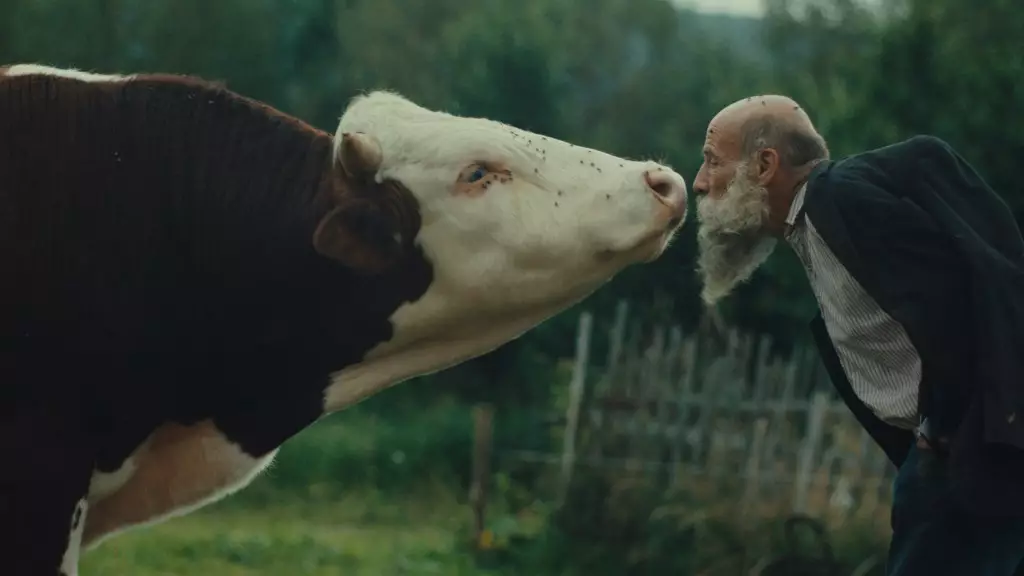In a world obsessed with polished images and curated narratives, the raw honesty captured in Miro Remo’s documentary, *Better Go Mad In The Wild*, emerges as a breath of genuine air. Unlike many films that aim for aesthetic perfection, this work boldly embraces imperfection, revealing the profound stories of people living on the margins of society. It consciously evades the temptation to romanticize or sensationalize its subjects; instead, it opts for a straightforward portrayal that invites viewers to question their assumptions. This choice is not just a stylistic preference but a moral stance—arguing that authenticity holds more power and insight than superficial judgments.
By channeling the spirit of iconic documentaries like *Grey Gardens* and *Pictures of the Old World*, Remo taps into a tradition of respecting his subjects’ lives without condescension. These films, both groundbreaking in their own ways, demonstrate that the way society perceives poverty, eccentricity, or rebellion is often superficial. Instead, they suggest that beneath such exteriorities lie rich, complex worlds driven by history, philosophy, and unyielding human spirit.
Celebrating the Wisdom of the Unsung Eccentrics
The central figures—František and Ondřej Klišík—embody this celebration. Their presence in the Bohemian Forest shatters stereotypes of rural ignorance or backwardness. These men are far from being mere inhabitants of an abandoned farmhouse; they are autodidacts, revolutionaries of a sort, who played a role in the Velvet Revolution. Their lives, marked by unconventional choices and a seemingly carefree attitude, reveal that intelligence and depth are often found in unexpected places.
The film portrays them as philosophers in disguise, engaging in conversations about poetry and life with a surprising level of sophistication. Their home, punctuated by relics like a picture of the Dalai Lama, symbolizes their openness to ideas beyond their immediate environment. Despite their drunkenness and rough hands, they exude a kind of rugged wisdom that challenges viewers to reconsider notions of education, success, and societal contribution. Such portrayals awaken a yearning to look beyond labels and recognize the extraordinary in the ordinary.
Balancing Intimacy and Provocation
Remo’s deliberate choice to leave much of their backstory shrouded in subtle hints rather than explicit exposition fosters a sense of intimacy and curiosity. Instead of spoon-feeding viewers details, the film invites us into moments of candidness—naked walks down country roads, playful bickering, and unabashed honesty about their lives. These scenes, rich with humor and vulnerability, create an authentic portrait of human eccentricity that is rarely seen on screen.
However, this approach is not without its pitfalls. The film’s reliance on these moments of eccentricity can sometimes border on voyeurism, risking reducing these individuals to spectacles of peculiarity. It struggles at times to maintain narrative momentum—when revelations are sparse and the focus remains on their quirks, the viewer might feel emotionally unmoored or wearied by the monotony of routine bickering and banter.
Yet, amidst these flaws, there resides a compelling truth: Remo’s focus on portraying their lived realities with minimal interference emphasizes that their stories are ultimately about human resilience, independence, and nonconformity. It’s a reminder that stories of unconventional lives are as deserving of respect and attention as those deemed traditionally admirable.
The Complexity Beneath Simplicity
Fundamentally, the film prompts us to question what constitutes a meaningful life. Are material success and societal approval the benchmarks of value? Or do genuine connections, intellectual pursuits, and unwavering authenticity define true richness? These are questions that the Klišík brothers, with their philosophical bulls and rural escapades, implicitly raise. Their lives showcase a world where deeper wisdom exists outside mainstream paradigms, concealed beneath a rugged exterior.
While some may criticize the film for its sparse storytelling or perceived superficiality, such critique misses the core ethos. The beauty of *Better Go Mad In The Wild* lies in its refusal to moralize or judge. Instead, it offers an unvarnished look into lives unfiltered by societal expectations. It challenges the audience to find poetry in dirt, profundity in drunken exchanges, and dignity in eccentricity.
This documentary stands as a testament to the power of authentic storytelling. It reminds us that beneath the surface of eccentricity and poverty lie stories that are worth hearing—stories that challenge, inspire, and redefine our understanding of what it means to live genuinely and freely.
